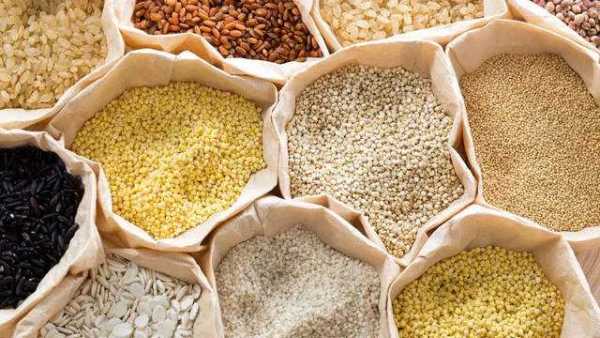 What diet are you up to for 2025? Do you focus on healthier choices, new food trends, or an old-fashioned approach?
What diet are you up to for 2025? Do you focus on healthier choices, new food trends, or an old-fashioned approach?
A quick note of concern: Changes in city lifestyle changes have drastically increased the consumption of refined grains, such as white rice and refined wheat flour known as 'maida'. These grains are highly processed using milling and bleaching to yield fine flour that is used in everyday culinary preparations. Products such as bread, pasta, noodles, and cakes have become staples, especially for children who often prefer foods made from refined flour. However, research has shown that the overconsumption of refined grains leads to weight gain, type 2 diabetes, heart disease, and other digestive issues.
In contrast, millets are minimally processed and typically consumed in their whole form or as flour or flakes. Millet bean, a patented crop grown in drought-prone areas of India, has gained popularity for its high nutritional value.
Why Millets Are a Better Diet Choice:
● Sustainable Agriculture :
○ Millets are grown in less fertile soils with minimal water requirements, making them an environmentally friendly and sustainable crop.
○ Their cultivation supports sustainable farming practices, especially in drought-affected regions.
● Nutritional Powerhouse:
○ Rich in essential nutrients like fiber, protein, vitamins, and minerals, millets are a highly nutritious addition to the diet.
○ They are gluten-free, making them an excellent option for those with gluten intolerance or celiac disease.
● Boosts Immunity:
○ Post-COVID-19, millets have gained popularity for their immunity-boosting properties, catering to the growing demand for health-conscious food choices.
● Supports Farmer Livelihoods:
○ Initiatives like the International Year of Millets 2023 have encouraged millet cultivation, improving livelihoods for farmers in arid and semi-arid regions.
● Versatile and Trendy:
○ Millet-based products have become a popular choice in meals, snacks, and even as innovative gifting options, aligning with modern eating trends.
● Environmentally Sustainable Diet Choice:
○ By choosing millet, consumers contribute to reducing the environmental footprint of their food choices.
As millet exporters, we have observed the significant acceptance of Indian millets globally due to their numerous health benefits and sustainability. Countries in Europe, GCC, the United States, Australia and Africa are increasingly importing millet-based products as consumers become more health-conscious and seek gluten-free alternatives. India has become a key exporter of millet, with a focus on catering to this rising global demand. This international recognition of millets is not only boosting India’s agricultural exports but also increasing the visibility of traditional Indian superfoods on a global scale.
This industry offers an array of delightful and wholesome products, including roasted bajra and ragi flakes, millet biscuits, millet wafers, millet tea, muesli, masala chickpeas, millet and cereal bars, jowar idli mix, and many more tempting options to satisfy both your taste buds and nutritional needs.
While refined grains are convenient and widely available, they are nutritionally inferior and environmentally taxing. In contrast, Indian superfood millets are a nutritional powerhouse and a sustainable option, making them an excellent choice for both health and environmental benefits.
By adding millets to dietary choices for 2025, individuals can improve their overall health outcomes and support sustainable farming practices. Looking ahead, this decade holds the promise of a "Grain Revolution." This movement will empower farmers in drought-prone areas to expand millet cultivation, ultimately contributing to a healthier world and paving the way to “Bring Back Healthy Life.”
(Mr Ajay Kangralkar, Founder, SkyRoots Ventures LLP)
